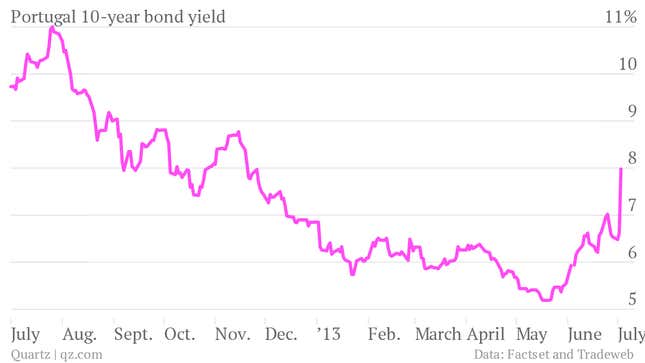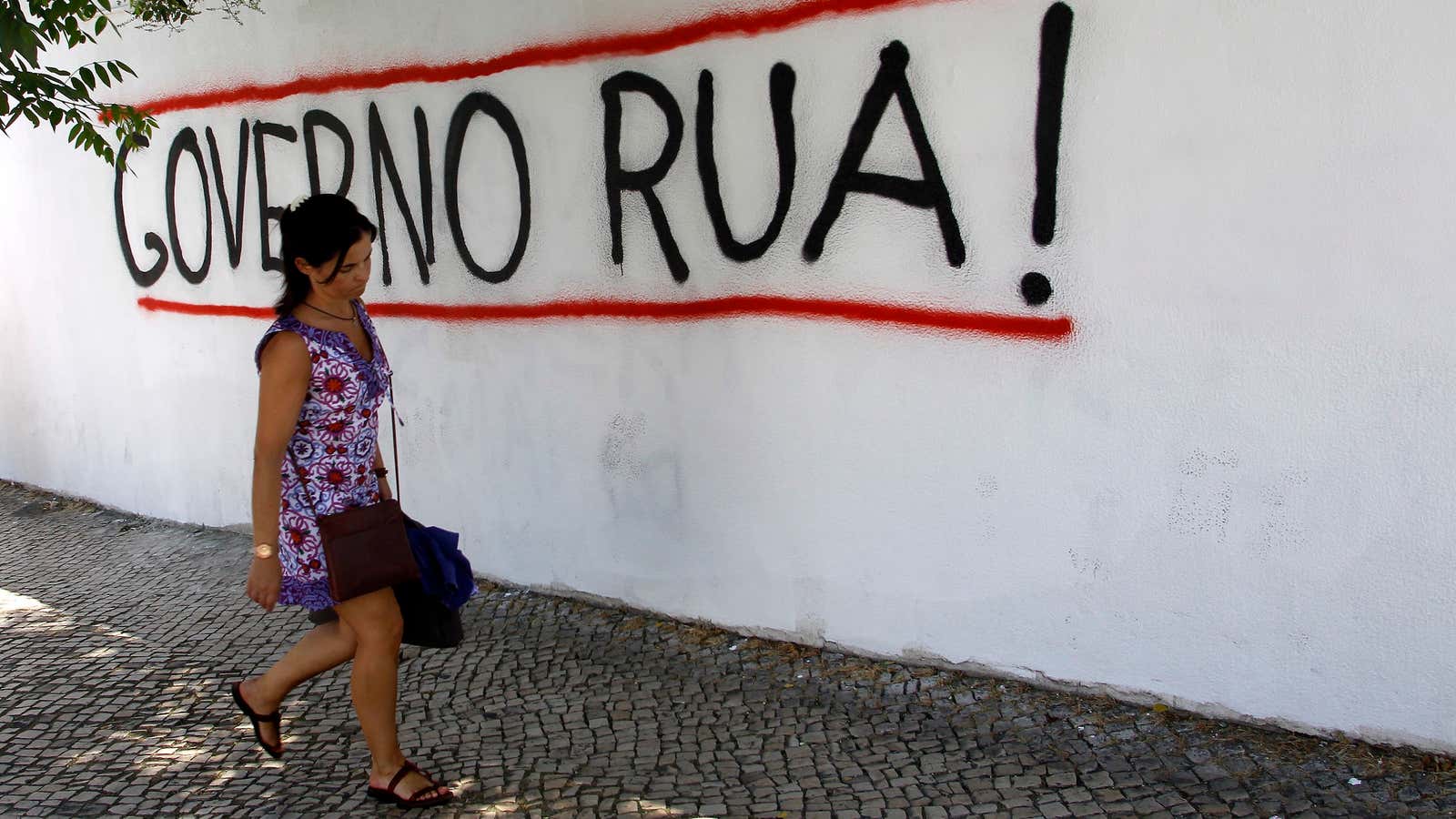
A wave of political unrest in Portugal is causing its government’s borrowing costs (i.e., yields on bonds) to shoot higher today. According to the latest data from Tradeweb, Portuguese 10-year bonds now yield 7.98%. The “danger level” for sovereign bonds, meaning a high risk of default, is typically seen as around 7%.
That’s quite a turnaround for a country that borrowed €3 billion ($3.9 billion) for 10 years in the open market for well under 6%. Even though European leaders have lauded Portugal’s efforts to pass unpopular economic reforms, the country is still at the mercy of the markets.
The rout has been caused by a shake-up in the country’s governing coalition. The leader of the Social Center-People’s Party (CDS-PP), Paulo Portas, resigned from his post as foreign minister yesterday. Members of his party are likely to abandon the coalition, which is led by PM Pedro Passos Coelho, a member of the Social Democratic party (PSD).
The question now is whether the coalition falls apart completely. The two feuding coalition partners could maintain their tense, fragile bond—at least, for the short term. Portugal’s president, Aníbal Cavaco Silva could try to form a unity government. Or, we could soon head to elections.
Whatever happens, Portuguese politics has both investors and the European leadership rattled. European Commission president José Manuel Barroso said in a statement today:
The initial reaction of the markets shows the obvious risk that the financial credibility recently built up by Portugal could be jeopardized by the current political instability. If this happens it would be especially damaging for the Portuguese people, particularly as there were already preliminary signs of economic recovery.
It’s highly likely that the political drama will result in new elections, says Antonio Barroso (no relation), senior vice president at political strategy firm Teneo Intelligence. But even elections would be relatively straightforward, unlike those in Italy and Greece recently, where third parties stepped in and won a stunning number of votes.
“This is a hiccup in the process but I don’t think this is a dramatic event in the sense that you’ll see a party that will revoke the bailout,” he told Quartz in an interview. “There is no Beppe Grillo [the ex-comedian who disrupted Italian politics] in Portugal…Even if a small party were to gain some seats, they wouldn’t be big enough to have an impact on the government.” For now, however, it’s “a very fluid situation, and no one knows what’s going to happen,” he said.
